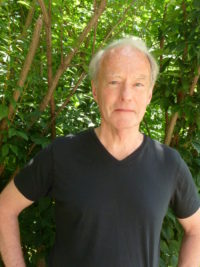"If you are acquainted with the principle," wrote Thoreau, "what do you care for myriad instances and applications?" Simplify, simplify, simplify.
But you may prefer complexity, following the stream.
The snow is still falling, night has descended, and the roads are impassable. The beautiful snow has stopped us in our tracks. Tomorrow we can resume our frantic movements, but for now we must simply stay put and wonder.
Eugene Ionesco, known for his absurdist plays, including Rhinoceros, puts it thus:
In all the cities of the world, it is the same. The universal and modern man is the man in a rush (i.e. a rhinoceros), a man who has no time, who is a prisoner of necessity, who cannot understand that a thing might be without usefulness; nor does he understand that, at bottom, it is the useful that may be a useless and back-breaking burden. If one does not understand the usefulness of the useless and the uselessness of the useful, one cannot understand art. And a country where art is not understood is a country of slaves and robots.
Ionesco emphasized the literal insanity of everyday life, comparing people to rhinoceroses that think and act with a herd mentality because they are afraid of the solitude and slowness necessary for lucid thought. They rush at everything with their horns. Behind this lies the fear of freedom, whose inner core is the fear of death. Doing nothing means being nothing, so being busy means being someone. And today being busy means being "plugged into the stream" of information meant to confound, which it does.
I return to the artist Pasternak, since the snowy night can't keep me away. Or has he returned to me? I hear Yurii Zhivago's uncle Nikolai speaking:
Only individuals seek the truth, and they shun those whose sole concern is not the truth. How many things in the world deserve our loyalty? Very few indeed. I think one should be loyal to immortality, which is another word for life, a stronger word for it ".What you don't understand is that it is possible to be an atheist, it is possible to not know whether God exists, or why, and yet believe that man does not live in a state of nature but in history".Now what is history? It is the centuries of systematic explorations of the riddle of death, with a view to overcoming death. That's why people discover mathematical infinity and electromagnetic waves, that's why they write symphonies. Now, you can't advance in this direction without a certain faith. You can't make such discoveries without spiritual equipment. And the basic elements of this equipment are in the Gospels. What are they? To begin with, love of one's neighbor, which is the supreme form of vital energy. Once it fills the heart of man it has to overflow and spend itself. And then the two basic ideals of modern man - without them he is unthinkable - the idea of free personality and the idea of life as sacrifice. Mind you, all of this is still extraordinarily new".Man does not die in a ditch like a dog - but at home in history, while the work toward the conquest of death is in full swing; he dies sharing in this work. Ouf! I got quite worked up, didn't I? But I might as well be talking to a blank wall.
I look outside and see the snow has stopped. It is time to sleep. Early tomorrow the plows will grind up the roads and the rush will ensue. Usefulness will flow.
But for now the night is beautiful and slow. A work of art.
(Note: You can view every article as one long page if you sign up as an Advocate Member, or higher).





